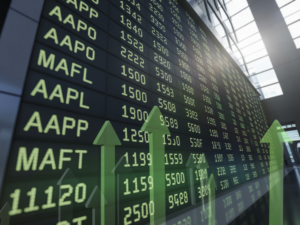The World of Commodity Market: A Navigation Guild
The commodity market is a type of marketplace that enables the buying and selling of various primary products and raw materials. There are two broad categories of commodities: hard and soft. The former includes natural resources like gold and rubber, while the latter includes livestock and agricultural products like wheat, sugar, and coffee. Highlights: How […]
The commodity market is a type of marketplace that enables the buying and selling of various primary products and raw materials.
There are two broad categories of commodities: hard and soft. The former includes natural resources like gold and rubber, while the latter includes livestock and agricultural products like wheat, sugar, and coffee.
Highlights:
- A commodity, such as oil, gold, or coffee, is bought, sold, or traded in a commodity market.
- There is a hard commodity, generally natural resources, and a soft commodity, generally livestock or agricultural products.
- Spot commodity markets involve immediate delivery, while futures markets involve delivery in the future.
- Investors can gain exposure to commodities through investments in companies that have exposure to commodities, or by investing directly in commodities through futures contracts.
- The largest US commodity exchanges are ICE Futures US and the CME Group, comprising four large exchanges: the Chicago Board of Trade, the CME Chicago, the CME New York and the CME Chicago.
How Does It Work ?
Through commodity markets, both consumers and producers can gain access to a wide range of products and services. These markets are also used by market actors to hedge their future consumption. A variety of investors and speculators are also involved in these types of markets. Some of these commodities, such as gold and silver, are known to be good inflation hedges. A broad commodity portfolio can help diversify a person’s risk-free returns.
Some investors also use commodities as a hedge against market volatility. Due to how they tend to move in opposite directions to stocks, they are often bought and sold by retail investors.
In the past, trading in commodities was typically restricted to professionals. Today, there are numerous options for individuals and groups interested in participating in the markets.
Types of Commodity Markets
Commodities are traded in both derivatives and spot markets. The former refers to cash or physical markets where sellers and buyers can exchange physical goods for delivery. On the other hand, the latter is a type of contract that involves the use of futures, options, and forwards.
For investors, these contracts provide them with the opportunity to purchase an asset at a price that they think is right now. Once the contracts have expired, the physical delivery of the item or asset will only occur. To avoid making a delivery at the end of the contract, many traders will close out their positions.
Although forwards and futures are similar, the former is more flexible and can be traded over-the-counter. The latter is more standardized and is transacted on exchanges.
How Do Commodity Markets Work ?
In spot markets, sellers and buyers can exchange funds for the immediate delivery of a physical product. On the other hand, in derivatives markets, the sellers and buyers can swap funds for the right to receive the product in the future.
Before delivery can occur, many derivatives holders will either roll over or close their positions.
Swap forwards are traded over the counter and are customized for each counterparty. Options and futures are standardized and have more regulated contracts.
Although commodities can be a great way to diversify your portfolio and hedge against inflation, it’s important to have a high level of tolerance for risk. Before you start trading these types of assets, it’s important to familiarize yourself with the multiple strategies involved.




